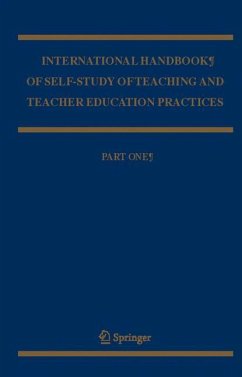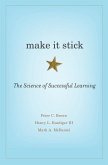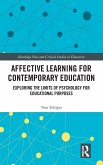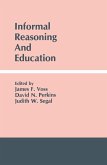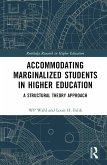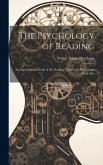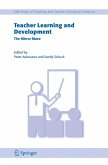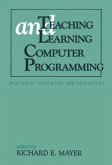The International Handbook on Self-study of Teaching and Teacher Education Practices is of interest to teacher educators, teacher researchers and practitioner researchers. This volume: -offers an encyclopaedic review of the field of self-study; -examines in detail self-study in a range of teaching and teacher education contexts; -outlines a full understanding of the nature and development of self-study; -explores the development of a professional knowledge base for teaching through self-study; -purposefully represents self-study through research and practice; -illustrates examples of self-study in teaching and teacher education.CD-Rom included
Hinweis: Dieser Artikel kann nur an eine deutsche Lieferadresse ausgeliefert werden.
Hinweis: Dieser Artikel kann nur an eine deutsche Lieferadresse ausgeliefert werden.
"This Handbook represents a major breakthrough in our understandings of the importance and usefulness of self study in teaching and teacher education. With this publication, self-study may be seen as a legitimate, commanding, and worthwhile field in educational research. The chapters take self study well beyond the simple bridging of research and practice. They demonstrate the power of the field as an intellectual endeavor with its own set of research criteria, conundrums, and elegant conceptualizations. But perhaps more importantly, this book suggests the potential of self-study to truly reform practice." (Professor Virginia Richardson, University of Michigan)
"This is an important handbook on the theory and practice of self-study by expert scholars from around the world. The contributors to this volume show in a variety of ways how the ancient delphic decree of "know thyself" acquires pedagogical power and significance when it is taken to mean "work on thyself," "improve thyself," "transform thyself," and "take care of thyself." The handbook offers an extensive review of the literature and, through discussions of issues and many examples, investigates the meaning and significance of self and self-identity in teaching and teacher education. For both, teachers and students, it is not only important to know who one is but who one may become. This implies that one must be able to see oneself as an individual who dares to be different, who has the courage to experiment with the self in constantly changing social contexts. Through a variety of practices the authors of the International Handbook of Self-study of Teaching and Teacher Education Practices show how the "self" is a dynamic principle, and how to study the subjectivity of inner self one must orient to the outer world: out there where one's identityone's relation to oneselfalways remains open to a future of possible ways of being and becoming. What emerges from this work is the realization how all teaching and learning is in a fundamental sense concerned with understanding, knowing, changing, and caring for the self and how researching practice through self-study is inevitably linked to informing ways of knowing." (Professor Max van Manen, University of Alberta)
"This comprehensive volume of 38 chapters written by prominent teacher educators in the self-study movement from a number of different countries represents a major landmark in the development of self-study in teaching and teacher education. The Handbook discusses different perspectives on self-study as a form of teaching, learning, research, and educational reform. In doing so, it acknowledges the complexity of the issues surrounding self-study and both the accomplishments and limitations in the work to date. Self-study in teaching and teacher education is fundamentally a radical concept that challenges currently dominant arrangements in which the voices of teachers and teacher educators are marginalized in the improvement of practice and in the creation of new knowledge about practice. This book is essential reading for everyone who is concerned about the future of teaching and teacher education in these times of narrow visions of educational accountability." (Professor Ken Zeichner, University of Wisconsin-Madison)
"This is an important handbook on the theory and practice of self-study by expert scholars from around the world. The contributors to this volume show in a variety of ways how the ancient delphic decree of "know thyself" acquires pedagogical power and significance when it is taken to mean "work on thyself," "improve thyself," "transform thyself," and "take care of thyself." The handbook offers an extensive review of the literature and, through discussions of issues and many examples, investigates the meaning and significance of self and self-identity in teaching and teacher education. For both, teachers and students, it is not only important to know who one is but who one may become. This implies that one must be able to see oneself as an individual who dares to be different, who has the courage to experiment with the self in constantly changing social contexts. Through a variety of practices the authors of the International Handbook of Self-study of Teaching and Teacher Education Practices show how the "self" is a dynamic principle, and how to study the subjectivity of inner self one must orient to the outer world: out there where one's identityone's relation to oneselfalways remains open to a future of possible ways of being and becoming. What emerges from this work is the realization how all teaching and learning is in a fundamental sense concerned with understanding, knowing, changing, and caring for the self and how researching practice through self-study is inevitably linked to informing ways of knowing." (Professor Max van Manen, University of Alberta)
"This comprehensive volume of 38 chapters written by prominent teacher educators in the self-study movement from a number of different countries represents a major landmark in the development of self-study in teaching and teacher education. The Handbook discusses different perspectives on self-study as a form of teaching, learning, research, and educational reform. In doing so, it acknowledges the complexity of the issues surrounding self-study and both the accomplishments and limitations in the work to date. Self-study in teaching and teacher education is fundamentally a radical concept that challenges currently dominant arrangements in which the voices of teachers and teacher educators are marginalized in the improvement of practice and in the creation of new knowledge about practice. This book is essential reading for everyone who is concerned about the future of teaching and teacher education in these times of narrow visions of educational accountability." (Professor Ken Zeichner, University of Wisconsin-Madison)

